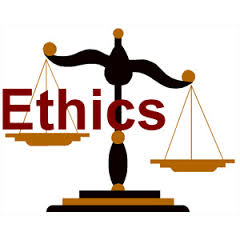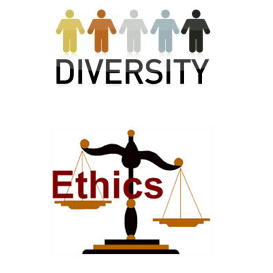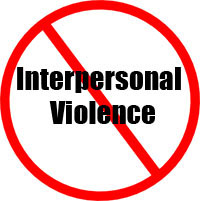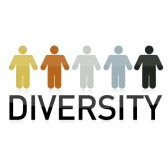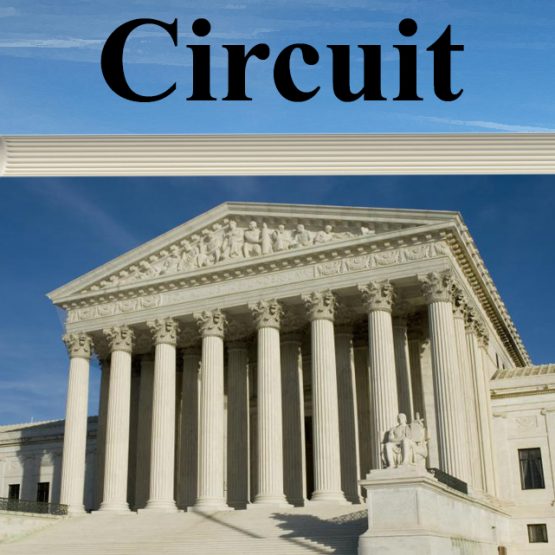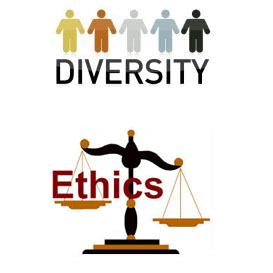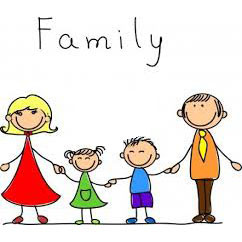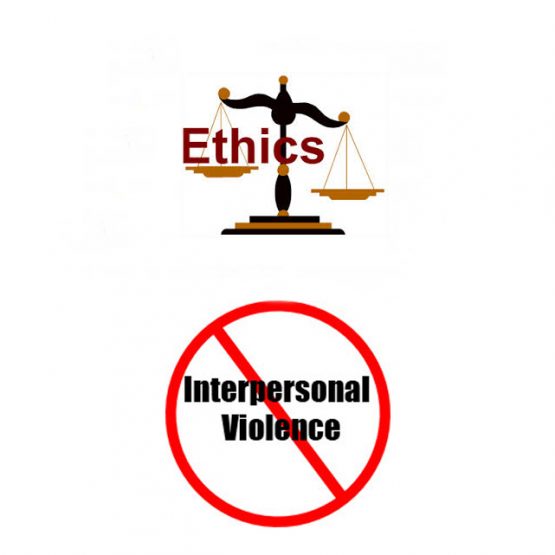Menu
Array
- 2023, August 4, DRC, Dispute Resolution Center Conference, Video Download Only
- 2022, August 11-13, DRC, Dispute Resolution Center Conference Recordings
- 2021, August 11-13, DRC, Dispute Resolution Center Conference - Video Download Only
- 2020, August 13-15, DRC, Dispute Resolution Center Conference Recordings - Video Download Only
- 2019, August 15-17, DRC, Dispute Resolution Center Conference Recordings
- 2018, August 9-11, DRC, Dispute Resolution Center Conference Recordings
- 2017, August 10-12, DRC, Dispute Resolution Center Conference Recordings
- 2016, August 11-13, DRC Dispute Resolution Center Conference Recordings
- 2015, July 30-August 1, DRC, Dispute Resolution Center Conference Recordings
- 2014, August 14-16, DRC, Dispute Resolution Center Conference Recordings
- 2013, August 9-10, DRC, Dispute Resolution Center Conference Recordings
- 2012, August 23-25, DRC, Dispute Resolution Center Conference Recordings
- 2011, August 25-27, DRC, Dispute Resolution Center Conference Recordings
- Catch All Category
Product Categories
Filter by price
A01 – ADR and Real Property Case Law Update: Mileposts for 2019 – 2020 – Michael Gelfand (1.2 CME Credits Ethics)
$5.00
Video recording: As the real estate market booms and busts, and communities increase and wan, this session will prepare mediators to be ready to mediate the disputes that will follow, including addressing new issues in condominium and homeowners’ association law mandatory ADR, and real estate in general. Explore recent decisions that impact your mediation and arbitration practices, including decisions
impacting ethical issues and in the area of real property law. Understand how the appellate courts reach their holdings.
A02 – Privadentiality: Making Sense of Florida Statutory Communication Protections – Gregory Firestone, Sharon Press (1.2 CME Credits Ethics)
$5.00
Video recording: There is a confusing array of communication protections across the spectrum of DR methods and no clear rationale for the varying communication protections.
This interactive workshop:
1. invites participants to consider differences between communication protections for mediation, collaborative law, and parenting coordination.
2. introduces a new term, privadentiality, to better describe DR communication protections
3. offers a framework for categorizing DR methods in order to develop more meaningful and understandable communication protections across the spectrum of DR.
A03 – Encountering Human Trafficking – MaryAnn Aiyer (1.2 CME Credits Interpersonal Violence)
$5.00
Video recording: Human trafficking is an ugly epidemic in our world, and it is impacting Central Florida with force. Learn how human trafficking intersects with individuals in various industries and with social media. Equip yourself with the knowledge to recognize human trafficking and respond quickly, safely.
A04 – XYZ: Communicating Across Generations at Mediation – Kristen Foltz, James Ratliff (1.2 CME Credits Cultural Diversity)
$5.00
Video recording: This workshop will explore communication barriers and issues relating to generational differences in the mediation process. Special attention will be given to how to improve
communication in mediation to ensure all participants understand and feel included in the process regardless of age. Theories regarding communication styles and conflict will be addressed followed by a
brainstorming session on best practices to avoid communication pitfalls during the process. This will include a review of relevant mediation rules, statutes and MEAC opinions.
A05 – Leading with Emotional Intelligence – Robert Zarrilli (1.2 CME Credits General)
$5.00
Video recording: Emotional intelligence or EI is the ability to understand and manage your own emotions, and those of the people around you. This workshop will teach People a high degree of emotional intelligence know what they’re feeling, what their emotions mean, and how these emotions can affect other people. Emotional intelligence is essential and is the foundation of all mediation and dispute resolution. After all, who is more likely to walk away from a dispute resolved – someone who shouts and creates a stressful environment or someone who stays in control, and calmly assesses the situation.
A06 – Brain Mapping for Conflict Resolution Professionals – Clay Phillips (1.2 CME Credits General)
$5.00
Video recording: The human conflict condition is three-dimensional: cognitive, emotional, and behavioral - each interdependent on the other. How we experience and process conflict is predictable if we understand how/where this activity originates and is processed in the brain. Likewise, when we transition from conflict to resolution, there is notable change in what motivates the brain’s activity. Knowing this, conflict resolution professionals can utilize extremely effective techniques to help the parties move from an emotional state to a cognitive state of decision making.
A07 – Finding Nonmonetary Solutions to Cross the Resolution Finish Line – Robin Caral-Shaw (1.2 CME Credits General)
$5.00
Video recording: Almost every situation can have a nonmonetary element to the resolution that clinches the deal. A landlord offers advertising in a shopping center flyer, a store owner offers gift certificates, a parent offers additional timesharing, or a party makes an apology. These nonmonetary offers can satisfy an emotional or practical need that makes the resolution possible. Using actual examples from the speaker and the audience, the importance of nonmonetary factors in a mediation will be made clear.
A1 – ”True Confessions Part I” – What Trial Lawyers and Their Clients Really Want from Mediators – Harold Oehler (1.2 CME Ethics)
$5.00
Video recording: A panel of veteran trial lawyers and client representatives, highly experienced and skilled at mediation, will share what makes them hire, and rehire, mediators. The panel will also reveal what mediators do that they like and don’t like and share their ideas for how mediators can improve the mediation process.
A1: Creating Safer Communities: Understanding Family Violence and the Effects on Communities and Organizations – Judith McKay (1.2 CME Credits Interpersonal Violence)
$5.00
Video recording: The need to create safer communities has never been more urgent than in our present day. Communities are struggling with violence, social injustice, and racism. This workshop will explore the relationship between violence in the home, and violence in neighborhoods and organizations. This impact includes the transgenerational transmission of trauma and extends far beyond family cases. It includes recent research related to Covid-19, the increase in family violence, the effects on underserved communities, and the effects on parties and clients.
A2 – The Mediator’s Playbook: Negotiation Tactics and Strategy for Mediation- Ana Cristina Maldonado, Shari Elessar (1.2 CME General)
$5.00
Video recording: Neutrals are the referees in the game of negotiation. Our position allows us to witness the strategies being used by each side to get what they want, and the tactics deployed to achieve those purposes. However, most parties and legal professionals have very little specialized negotiation training. Most people approach negotiation from their natural conflict resolution style. This presentation will help you be a more effective neutral by improving your knowledge of conflict resolution strategies as well as negotiation tactics and techniques.
A2: Voices of the Vulnerable in Mediation: Ethics and Practice – Linda Fieldstone and Fran Tetunic (1.2 CME Credits Ethics and Cultural Diversity)
$5.00
Video recording: Dispute Resolution practitioners have the obligation to have all voices in the process be meaningfully heard, which may be challenging when working with some of the most vulnerable among us: children, elders, and individuals with disabilities. How do we keep the voices of the vulnerable prominent while respecting all at the table? This workshop will help family and elder mediators, as well as parenting and eldercaring coordinators, consider ethical obligations and practical techniques that guide us in strengthening the voices of those who might otherwise be silenced or disregarded.
A3 – Taking the Dispute Out of Resolution: Helping Battle-Weary Couples Get a Grip – Veronica Nabizadeh (1.2 CME General)
$5.00
Video recording: In this workshop, you’ll learn about the 7 Relationship Saboteurs that made your clients throw in the towel and how Stop, Drop, and Roll — the most powerful technique on my divorce mediation tool belt — can help your clients communicate and articulate what they want from you. Full of real-life examples and ample time to ask questions, this workshop will add four actionable items to your toolbox arsenal to help you resolve disputes more effectively.
A3: Multilingual Mediation: Scenarios and Solutions – Ana Cristina Maldonado (1.2 CME Credits Ethics and Cultural Diversity)
$5.00
Video recording: English is the language of our court system, but this is Florida, and many people in our state speak another language and no English, prefer another language to English, or are multilingual. This workshop reviews the various the scenarios where multiple languages come into play during mediation. How can a mediator - either monolingual or multilingual - approach them and not run afoul of ethical rules and opinions or court rules?
This session will be repeated during Workshop Series B.
A4 – Widening Your Professional Lens from Young to Old: Reframing Aging in ADR – Linda Fieldstone, Brianne Stanback (1.2 CME Credits Ethics and Cultural Diversity)
$5.00
Video recording: While the global focus on older adults has been so vibrant in the past few years, evidence and implications of ageism are more pronounced than ever. This powerful presentation addresses constructive and ethical practices during ADR processes involving older adults. Enhancing our understanding of aging and ageism, reframing ethical decision making, and refining tools available to professionals are some of the ways in which the ADR experience could become age inclusive, while encouraging positive intergenerational and intercultural interactions.
A4: Is Your Agreement to Mediate up to the Zoom Challenge – Robin Caral Shaw (1.2 CME General)
$5.00
Video recording: Our agreements to mediate have not been updated much over the last 20 years or so. Now, with Zoom mediations, every mediator should take a good look at his or her agreement to make sure it incorporates the current realities of online mediation. There is a second issue that has received a spotlight lately as well: The challenge of more mediation participants -- including mediators -- bringing weapons into mediation. Have people been modifying their Agreements to Mediate to address safety concerns?
A5 – Intervention Strategies for Mediators: How to Address and Tackle Interpersonal Violence – Alexia Georgakopoulos, Lizyvette Ramos (1.2 CME Interpersonal Violence)
$5.00
Video recording: This workshop covers highly relevant and critical concepts beneficial for mediators to address and tackle interpersonal violence effectively and acquire rich knowledge regarding IPV Intervention Strategies. Topics include interpersonal violence & domestic violence definitions, power & control, IPV & mediation, criteria for effective screening and for excluding cases, confidentiality, accommodations, risks, intervention, reporting, emotional concerns, unhealthy relationships, trauma, resources & services for survivors, restraining orders, victim advocacy, communication, and shuttle diplomacy.
A5: Using Questioning Techniques to Move Mediation Forward – Mary Bruck (1.2 CME General)
$5.00
Video recording: This workshop focuses on "Creative and Critical Thinking Approaches to Questioning" in mediation. Asking the questions in a way to open and continue the dialogue during mediation can help reach an agreement. Types of questions, probing questions, and questions to get to the interest of the parties are discussed. Creating a positive environment through questioning is also practiced.
A6: Cultural Diversity and Gestures in Mediation – Sonya Nasser and Peter Spanos (1.2 CME Cultural Diversity)
$5.00
Video recording: This presentation will discuss how to handle mediating with people who are from various cultural backgrounds. Various Cultures have different approaches as to how they handle conflict. Communication styles vary and awareness of the styles makes for an easier flow of the mediation process. Knowing the gestures and communication styles amongst various cultures makes it easier for a mediator to be able to facilitate the discussion necessary for the parties to come up with a settlement agreement.
A7: ADR for Cryptocurrencies – Alberto Saravia (1.2 CME General)
$5.00
Video recording: Cryptocurrencies are going mainstream and future disputes will most surely arise and encompass many issues affecting and shaping commercial relationships between multiple counterparts, a clear trend that will require highly specialized mediation that will have to be conducted and resolved with consumer protection and business compliance parameters in mind. There will be a need to solve multiple operational and transactional issues and problems, as well as potential valuation discrepancies between the contracting parties as all these quasi monies are in their infant stage of general acceptance.
B01 – Personal vs. Professional Mediation Ethics – Chester Wilson (1.2 CME Credits Ethics)
$5.00
Video recording: This presentation will discuss and explore personal and professional mediation ethics and how it affects a person and the workplace. This presentation will outline the similarities and the differences in ethics and will examine the workplace culture versus personal beliefs and discuss the possible conflicts that arise in an employee’s personal versus professional ethics. This presentation will conclude with examples of how personal and professional ethics may conflict and potential solutions to resolve the conflict.
B02 – MEAC: Year in Review – Christy Foley (1.2 CME Credits Ethics)
$5.00
Video recording: This workshop will review the 2019-2020 MEAC opinions that were published, explain them, and help mediators to understand the practical implications of them. Specifically, we will explore why the MEAC opinions were decided the way they were and how mediators can avoid the ethical problems addressed in each opinion.
B03 – Intimate Partner Violence: Research and Impact on Mediation – Judith McKay (1.2 CME Credits Interpersonal Violence)
$5.00
Video recording: This workshop will present recent research and perspectives on intimate partner violence. It will examine the typology of intimate partner violence and the efficacy of various interventions. Subtopics will include multi-cultural perspectives, multi-modal considerations, and the impact on mediation. While intimate family violence may begin in the home, it never stays there; it affects families, communities, and the workplace. Consequently, it requires a collaborative effort to understand and analyze the causes and to create and initiate preventative measures and appropriate interventions.
B04 – Mediating Extraordinary Families: Special Needs, LGBTQIAA and Extended Families – Natalie Baird, Sarah Kay (1.2 CME Credits Cultural Diversity)
$5.00
Video recording: This workshop is designed to assist mediators with understanding the unique cultures and perspectives of families with special needs children, families with LGBTQIAA members, and families that are comprised of more than simply parents and their shared biological children; understanding how those differences impact the mediation process; and ethical considerations when conducting the mediations.
B05 – Mediation in Estates, Trusts, and Guardianships – Steve Ellis (1.2 CME Credits Circuit)
$5.00
Video recording: This workshop will explore the applicability of the:
A. Florida General Rules of Mediation
B. Mediator Ethics and Advisory Committee (MEAC) Rulings
C. Present case law regarding incapacity and other issues to mediation in the area of estates, trusts, and guardianship litigation and pre-litigation conflicts.
B06 – Mediators and Detectives Make Great Problem Solvers! – Jennifer Hodges (1.2 CME Credits General)
$5.00
Video recording: Mediators are often like detectives. They develop agendas and help their parties discover solutions to problems. This workshop will focus on strategies to unearth the agenda of the parties and cultivate possible solutions which could lead to an outgrowth of positive outcomes.
B07 – Appellate Mediation – Why is it Different? – Jamie Moses (1.2 CME Credits General)
$5.00
Video recording: Why is appellate mediation different - what do you need to know to be an effective appellate mediator and gain the confidence of appellate practitioners to trust you with the appellate mediation needs?
B1 – Don’t Wait Until This Happens to You! Steps for Preventing (or Dealing With) a Mediator Subpoena – Meah Tell, Lester Langer, Shari Elessar (1.2 CME Ethics)
$5.00
Video recording: As a mediator, you play a key part in the administration of justice by fostering joint problem solving and exploring settlement alternatives, in a presumptively confidential environment. One day, a process server knocks on the door of your home, and you are served with a subpoena. You are commanded to appear to testify in litigation and/or produce documents related to the mediation! Learn to deal with a subpoena when it is served, understand the scope of confidentiality – when it applies and when it does not – and protect yourself and the privilege of the mediation process.
B1: Abuse, Neglect and Exploitation of a Vulnerable Adult – Twyla Sketchley (1.2 CME Interpersonal Violence)
$5.00
Video recording: By 2030, 1/3 of Florida's population will be over 60 years of age. Individuals over age 60 are targets for abuse and exploitation. Exploitation causes approximately $20 billion in damages each year and often is accompanied by physical abuse or neglect. This presentation will provide mediators with information for identifying vulnerable adults in mediation; the signs of abuse, neglect, & exploitation; and the obligations of a mediator and other parties with regard to vulnerable adults in Florida.
B2 – Mediating Class Actions – Aaron Weiss (1.2 CME General)
$5.00
Video recording: Class action mediation is a unique type of mediation. This is because a mediated class settlement will bind the rights and obligations of absent participants (class members), raise serious due process concerns (far broader than the mechanics of notice), present detailed issues with respect to the defendant(s)’ obtaining of complete peace, and are subject to scrutiny and analysis by the trial judge and potentially appellate judges. Mediators who have not had much experience with class actions should be aware of special issues related to mediating class actions.
B2: Hey, I Know You – Chester Wilson (1.2 CME Ethics)
$5.00
Video recording: This workshop will focus on mediating parties known to the mediator. It will highlight disclosing to party's relationship history and the ability to remain neutral. Mediators will learn how to assess themselves for appropriateness and examine their ability to remain neutral or recuse themselves.
This session will be repeated during Workshop Series C.
B3 – Uncommon Solutions to Common Mediation Obstacles – Christina Magee, John Salmon (1.2 CME General)
$5.00
Video recording: A two-person panel discussion presenting tested, effective mediation solutions to multiple mediation obstacles, such as: confidentiality in pre-suit matters involving pro se parties (HOA or multi-vehicle accidents); addressing changes in pre-mediation offers that appear to doom any chance of resolution; last-minute substitution of a disruptor party in the mediation conference; collectability issues; and additional topics as time permits.
B3: Multilingual Mediation: Scenarios and Solutions – Ana Cristina Maldonado (1.2 CME Ethics and Cultural Diversity)
$5.00
Video recording: English is the language of our court system, but this is Florida, and many people in our state speak another language and no English, prefer another language to English, or are bi-lingual or multilingual. This workshop reviews the various the scenarios where multiple languages come into play during mediation. How can a mediator - either monolingual or multilingual - approach them and not run afoul of ethical rules and opinions or court rules?
This session is a repeat from Session A3.
B4 – Artificial Intelligence: ChatGPT for Mediators – Christopher Hopkins (1.2 CME General)
$5.00
Video recording: This workshop will introduce mediators, regardless of technology skill level, to artificial intelligence platforms such as ChatGPT and ChatSonic. Mediators will learn how “large language models” work, how to use them, and how AI is being used by litigators and parties. The mediator will learn specific prompts and leave with functional knowledge; specifically, the mediator will learn how “Chat AI” can be used to expedite back-office processes as well.
B4: Understanding ESI, E-Discovery & Other Technology Issues Which Litigators Are Fighting Over in Your Mediation – Christopher Hopkins (1.2 CME General)
$5.00
Video recording: Disputes between parties -- and even discovery disputes between lawyers -- have become increasingly more technologically complicated. These issues can arise in even non-tech related cases (e.g., phone and social media records sought in accident cases; metadata sought in commercial cases; social media info sought in family cases). Make sure you understand the basic concepts of e-discovery, ESI, production of emails vs. PDFs, preservation requirements, social media discovery, subpoenas to internet providers, etc. before you mediate your next case.
B5 – Human Trafficking in Florida – MaryAnn Aiyer (1.2 CME Interpersonal Violence)
$5.00
Video recording: Where does Florida rank in the trafficking atrocity? Who are the likely victims? How does the internet fan the spread of trafficking? How can we, personally, take action to protect our families and communities from trafficking? This workshop will address these questions and more!
B5: Mindfulness Mediation Techniques – Patrick Russell and Jeanne Potthoff (1.2 CME General)
$5.00
Video recording: Introduction to mindfulness and how it can impact mediation and lead to more positive and ethical outcomes. This is not your typical interest-based negotiation technique or how to identify and utilize leverage. Rather, this is about adjusting and fine-tuning your own perspective as a mediator and the perspective of those around you during mediation to facilitate better outcomes.
B6: Probability for Mediators – Judith Starr (1.2 CME General)
$5.00
Video recording: The accurate estimation of alternative outcomes by the parties is an important driver of a successful mediation. When parties make unrealistic predictions using flawed analytical methods, they can get stuck in impasse or reach suboptimal agreements out of sheer exhaustion. Mediators need analytical tools that help them identify flawed analyses and engage with parties in objectively assessing potential outcomes of their dispute. The goal of this workshop is to provide such tools by fostering an understanding of basic probability principles and their application to the mediation process.
B7: The Craft of Mediation: Effective Strategies That Also Support Diversity and Inclusion – Rebecca Storrow, Harold Coleman and Alexis Georgakopoulos (1.2 CME Cultural Diversity)
$5.00
Video recording: It is important for experienced, practicing mediators to expand their toolboxes of techniques. Developing core skill sets, questioning entrenched systems, and appreciating the complex nature of human relationships can help mediators advance their practice. Exploring mediation as a craft can lead to incorporating multidisciplinary approaches, including appreciative inquiry, which ultimately support diversity of practice and cultural diversity.
C01 – Walking the Tight Rope in Mediation: The Art of Balancing Evaluation Techniques – Harold Coleman Jr, Alexia Georgakopoulos, Rebecca Storrow (1.2 CME Credits Ethics)
$5.00
Video recording: A series of case simulations will help participants uncover the opportunities and pitfalls in supporting a party’s evaluation of their position. Strategic techniques should yield to the ethical, sociopsychological dimensions, and cultural frames of problem solving. We will challenge the rational-strategic approach to decision making that insists parties will always choose the “better” option or correctly assess risk and reward.
C02 – Ethics in Elder Mediation and Eldercaring Coordination: The Clock is Ticking – Linda Fieldstone, Fran Tetunic, Kim Torres (1.2 CME Credits Ethics)
$5.00
Video recording: Florida’s older population is on track to double between 2010 and 2040. Learn more about the unique characteristics of this population and how to best meet their dispute resolution needs via elder mediation and eldercaring coordination. Through discussion and interactive activities, we will address the ethical dilemmas we face and why working with older adults and their families requires specialized skills and training.
C03 – Trauma Responsive Courts & Dispute Resolution – Leigh Merritt, Adrienne Miller (1.2 CME Credits Interpersonal Violence)
$5.00
Video recording: This workshop will address how trauma can present in the dispute resolution process, something that is not regularly considered. When participants have experienced trauma, they may be appear to be resistant or angry, but a mediator who understands trauma can not only work past those feelings, but avoid re-traumatization during the dispute resolution process. This workshop will also benefit mediators who may unknowingly take-on some of this outside trauma or become overwhelmed in the process of trying to help others who have experienced trauma.
C04 – Cultural Diversity When Mediating Church Involved Disputes – Thomas Colbert, Ferman Richardson (1.2 CME Credits Cultural Diversity)
$5.00
Video recording: A proactive training, with a no-holds-barred passion, designed to warn, protect, and equip workshop participants with the necessary tools needed to assess and positively check and consider the “diversity of thought” in a climate frequently found within the Church/Religious arena, where Conviction and Belief often opposes Changing Laws of Inclusion, while providing workshop participants with strategies to possibly avoid the pitfalls now found in an increasingly litigious society.
C05 – Getting to Effective – Stacey Mullins (1.2 CME Credits General)
$5.00
Video recording: This presentation focuses on elements of personal communication; effective mediation negotiation skills including focusing on interests, not positions, problem analysis, preparation, the importance of validating emotions, and creating a collaborative environment; tools of active listening skills; verbal and nonverbal communication; communication blockers; being effective versus being right; and ethics.
C06 – A Mediator’s Guide to the Financial Affidavit – Deborah Beylus (1.2 CME Credits Family)
$5.00
Video recording:
• Identify the role of financial affidavits in mediation.
• Identify the components of the financial affidavit.
• Calculating the types and amount of income on the financial affidavit used for calculating child support.
• Determine monthly financial net surplus or deficit and analyze alimony options.
• Review the client’s assets and debts and valuations used to identify marital assets, values for equitable distribution.
• Identify the relationship between the expenses and debt.
C07 – The ABC’s of Receiverships – Amir Isaiah (1.2 CME Credits Circuit)
$5.00
Video recording: What is a receiver? When should you seek an appointment of one? What is FCRERA (Florida Commercial Real Estate Receivership Act)? An overview on receiverships, including the roles & types of receiverships, ethical considerations, qualifications of a receiver, and legal & equitable authority for the appointment of a receiver, will be discussed. Procedural aspects, pre-appointment issues,
engagement of professionals, locating of assets, the receiver’s neutrality, funding of the estate, and how the appointment of a receiver can alter the dynamic of the underlying dispute, will also be discussed.
C1 – Self-Determination & Stalemates – Gary Rosner (1.2 CME Ethics)
$5.00
Video recording: This workshop will cover techniques in ethically breaking a stalemate. Topics include meeting with counsel without clients (with client’s consent) and recognizing the signs of a party who is not making decisions of their own volition/self-determination due to pressure, duress, or coercion. These areas should be addressed in the mediator’s opening statement and throughout the mediation as necessary so that all parties are comfortable with the process.
C1: Abuse is Not Just Physical: Learn the Other 11 Types – Christine Hammond (1.2 CME Interpersonal Violence)
$5.00
Video recording: Abuse is like a virus that spreads in overt, covert, and even unintentional ways, breeding dysfunction within families, relationships, and the next generation of society. Whether the abuse happens to a child, adult, or senior, it’s time to stop the spread. This can only happen when as professionals we begin to recognize the various types of abuse. We can be the change that positively impacts the next generation by identifying, confronting and inspiring healing from abuse.
This session will be repeated during Workshop Series D.
C2 – Impasse Management 2.0 – Overcoming Barriers to Agreement & Settlement Building – Harold Coleman, Jr., Lou Chang, Debra Dupree (1.2 CME General)
$5.00
Video recording: Discover tried and proven strategies for working through and past the emotional and rational barriers to resolution in mediated settlement negotiations. This workshop
will explore a “triaged” approach to managing impasse, identify effective emotional interventions, and overview a variety of analytical techniques for negotiating settlement options and framing proposals.
C2: Ethics & Technology in Age of Zoom – Anthony Garcia (1.2 CME Ethics)
$5.00
Video recording: After providing a brief update in Zoom mediation, this workshop will discuss expectations of lawyers at mediation and what challenges are faced by the virtual platform as well as the benefits. Next, helpful hints on preparation as well as effective techniques to consider will be discussed. The workshop will provide business tips as well as demonstrating what can be gained from using mediation as a proper tool. Finally, the session will conclude with a review of the Rules of Professional Conduct and confidentiality.
This session will be repeated during Workshop Series D.
C3 – Marketing Your Mediation Practice – Elise Elsberry, Jolie Weinberg (1.2 CME General)
$5.00
Video recording: In today’s practice, you need to have a wide-reaching presence. Let’s talk about how to improve your mediation practice, from creating an interactive website, using social media effectively, and networking both in person and virtually.
C3: Hey, I Know You – Chester Wilson (1.2 CME Ethics)
$5.00
Video recording: This workshop will focus on mediating parties known to the mediator. It will highlight disclosing to party's relationship history and the ability to remain neutral. Mediators will learn how to assess themselves for appropriateness and examine their ability to remain neutral or recuse themselves.
This session is a repeat from Session B2.
C4 – A Mediator’s Ace in the Hole: Objective and Optimistic Reflection – Kate Marshman (1.2 CME Ethics)
$5.00
Video recording: Keeping your words neutral and positive takes careful thought and practice. Mediators will track ethical rules and learn valuable phrases and practices to neutrally reflect party positions in mediation. Plus, this workshop will discuss how a positive tone can be a win-win for all parties in your mediation.
C4: Remote Consensus: Virtual Resolution – Jeffrey Kleeger and Victoria Krouch (1.2 CME General)
$5.00
Video recording: How do we bring people together to promote consensus in an increasingly virtual environment? This presentation will discuss and explore what techniques are most effectively used to promote consensus on legal issues and how we experience the psychological aspects of conflict resolution in a remote environment. Knowing this, conflict resolution professionals can utilize highly effective legal consensus professional strategies to help the parties in decision making.
C5 – Building Psychological Safety in Mediation – Kristin (Kiki) Grossman (1.2 CME Interpersonal Violence)
$5.00
Video recording: This workshop provides participants a trauma-informed framework to understand the challenges our nervous systems experience when navigating conflict as well as tools for shaping psychologically-safe conflict navigation/mediation processes. Among other sources, this class draws upon the work of Amy Edmondson as a foundation for the concept of psychological safety, and the work of Stephen W. Porges and Deb Dana as a foundation for the concept of neuroception and polyvagal theory.
C5: Pre-Conference Powerfully, Peacefully, Prepare Parties – Kelly McGrath (1.2 CME General)
$5.00
Video recording: One of the most successful strategies a mediator can implement is taking the time to pre-conference with each party prior to bringing the parties together for mediation. This session not only gives the mediator valuable information about the tender spots and areas of agreement or concern, but allows the mediator to encourage and facilitate the resolution by reducing the flight, fight, or freeze trauma response, aligning values with action, and seeing the vision each party has of their life after the resolution. Mediation preparation creates powerful and peaceful resolutions.
C6: Mastering Mediations: Experts Discuss – Christina Magee, Michelle Jernigan and Shari Elessar (1.2 CME General)
$5.00
Video recording: In this panel, a facilitator and two experienced mediators take on questions submitted in advance about difficult situations that arise in mediations and ways to address these situations while still moving forward to resolution. In addition to the questions submitted in advance, the panelists will discuss topics related to virtual vs. in-person mediations such as neutrality concerns; confidentiality issues related to video-conferencing mediations; strategies to begin mediations; favorite momentum generators and successful ways to bring people together and achieve resolution.
This session will be repeated during Workshop Series D.
C7: What Every Mediator Needs to Know About Credit and Divorce – Deborah Beylus (1.2 CME Family)
$5.00
Video recording: Most divorcing couples believe that a divorce decree can relieve a spouse of a joint financial obligation. Court orders and divorce decrees can't save divorcing couples from financial peril if one or both spouses act irresponsibly. People have a naive expectation toward court orders, like they're magic. Court orders are not magic. People have to learn to take responsibility for their own finances and their own lives.
D01 – The Rules for Certified and Court-Appointed Mediators – David Wolfson (1.2 CME Credits Ethics)
$5.00
Video recording: The Rules for Certified and Court Appointed Mediators will be discussed in depth. Examples for their application will be given along with MEAC interpreting them. Audience participation will be requested for further examples of how the rules have been applied.
D02 – Walking the Tight Rope in Mediation: The Art of Balancing Evaluation Techniques – Harold Coleman Jr, Alexia Georgakopoulos, Rebecca Storrow (1.2 CME Credits Ethics)
$5.00
Video recording: A series of case simulations will help participants uncover the opportunities and pitfalls in supporting a party’s evaluation of their position. Strategic techniques should yield to the ethical, sociopsychological dimensions, and cultural frames of problem solving. We will challenge the rational-strategic approach to decision making that insists parties will always choose the “better” option or correctly assess risk and reward.
D03 – The Collaborative Process: What You Need to Know About It – Robert Merlin (1.2 CME Credits Family)
$5.00
Video recording: More and more family attorneys are becoming trained in the Collaborative Process. This workshop will give all family attorneys an opportunity to learn what they need to know about the
basics of the Collaborative Process. It will give trained Collaborative attorneys an opportunity to dig deeper into the Collaborative Process, especially the ethical rules that apply to all attorneys and specifically, Collaborative attorneys.
D04 – Mathematics of Zero-Sum Mediation – Howard Marsee (1.2 CME Credits General)
$5.00
Video recording: Zero-sum negotiations deal largely, though not exclusively, with dollars and numbers. Usually, the parties are looking for an acceptable number between two extremes. Mathematics, thoroughly understood and properly utilized, can become a valuable tool in the process.
D05 – Changing Schools in Florida through the TP2K Movement – Isis Clemente (1.2 CME Credits General)
$5.00
Video recording: As mediators, we believe that problems can be solved by looking for alternatives. I first became aware of this perspective in my late 30’s as an adult. But… What If… we were to train children, as young as Kindergarten, as well as teachers, counselors, administrators and parents to filter confrontations through the: “What is the alternative?” lens. Let’s erase shouting, chastising and/or using violence. Join us in a movement that will change schools in Florida through the series named: “Teach Peace to Kids” aka (TP2K).
D06 – Decision Fatigue: Hidden Factors that Impede Progress – Christine Hammond (1.2 CME Credits General)
$5.00
Video recording: Have you ever wondered about the hazy, glassy-eyed, indecisive appearance during collaboration? It could be decision exhaustion which happens to clients and professionals alike. This hidden factor drags out the process unnecessarily, triggers past abusive behavior, causes survival mode to kick in, and alienates members of the team. Learn how to identify past occurrences, modify current circumstances to minimize the impact, and prevent it in the future.
D07 – The Nuts and Bolts of Zoom – Ana Cristina Maldonado (1.2 CME Credits General)
$5.00
Video recording: This training for mediators is on the topic of ZOOM account setup, meeting creation and scheduling, technology issue troubleshooting, ZOOM tools, and meeting safety.
D1: Abuse is Not Just Physical: Learn the Other 11 Types – Christine Hammond (1.2 CME Interpersonal Violence)
$5.00
Video recording: Abuse is like a virus that spreads in overt, covert, and even unintentional ways, breeding dysfunction within families, relationships, and the next generation of society. Whether the abuse happens to a child, adult, or senior, it’s time to stop the spread. This can only happen when as professionals we begin to recognize the various types of abuse. We can be the change that positively impacts the next generation by identifying, confronting and inspiring healing from abuse.
This session is a repeat from Workshop Session C1
D2: Ethics & Technology in Age of Zoom – Anthony Garcia (1.2 CME Ethics)
$5.00
Video recording: After providing a brief update in Zoom mediation, this workshop will discuss expectations of lawyers at mediation and what challenges are faced by the virtual platform as well as the benefits. Next, helpful hints on preparation as well as effective techniques to consider will be discussed. The workshop will provide business tips as well as demonstrating what can be gained from using mediation as a proper tool. Finally, the session will conclude with a review of the Rules of Professional Conduct and confidentiality.
This session is a repeat from Workshop Session C2
D3: Re-Envisioning Mediation in Pandemic and Beyond – J. Forrest Young, Renee Danser and Amanda Horton (1.2 CME General)
$5.00
Video recording: The 10th Judicial Circuit is developing innovative services for Pro-Se litigants. Focusing on Divorce cases, they are learning how their clients engage with the court and the efficacy of their online processes. Partnering with the Access to Justice Lab at Harvard Law School, they will conduct a rigorous evaluation. They'll learn the impact of their procedures and the participants’ perceptions of justice. Uniquely, in the data obtained will be the impact of their process on the well-being of both the participants and the mediator. We will discuss technology solutions and rigorous evaluation.
D4: Personal Evolution of The Experienced Mediator – Gregory Firestone (1.2 CME General)
$5.00
Video recording: Gregory Firestone will discuss personal lessons learned as he evolved as a mediator and attempted to integrate conflict resolution methods into his personal life. Specific experiences will be used to exemplify basic negotiation, mediation and conflict resolution skills, and the transformative effect of engaging the world in a more collaborative manner.
D5: Skillful Communication as a Tool in Mediation – Howard Marsee (1.2 CME General)
$5.00
Video recording: This presentation is designed to increase each participant's sensitivity to the positive and negative potential of both verbal and non-verbal communications in resolving conflict. One goal is to aid in the recognition of destructive speech and patterns of communication. The workshop offers concrete, positive alternatives to some commonly occurring, counter-productive, communication errors during the mediation process--including those arising from a lack of cultural and diversity awareness.
D6: Mastering Mediations: Experts Discuss – Christina Magee, Michelle Jernigan and Shari Elessar (1.2 CME General)
$5.00
Video recording: In this panel, a facilitator and two experienced mediators take on questions submitted in advance about difficult situations that arise in mediations and ways to address these situations while still moving forward to resolution. In addition to the questions submitted in advance, the panelists will discuss topics related to virtual vs. in-person mediations such as neutrality concerns; confidentiality issues related to video-conferencing mediations; strategies to begin mediations; favorite momentum generators and successful ways to bring people together and achieve resolution.
This session is a repeat from Workshop Session C6
D7: Mental Health 101 – Stephanie Byrd (1.2 CME General)
$5.00
Video recording: The workshop covers the basics of mental health, reduces stigma, identifies factors contributing to distress & disease, identifies signs of stress, distress, and disease, introduces treatment options, and provides considerations for clients and resources to support them. Resources for referring out of your area of expertise will be provided.
PL1 – Keynote Presentation: Insights on Mediator Practices and Perceptions by Professor Thomas Stipanowich (1.5 CME General)
$5.00
Video recording: The opening Keynote presentation of the DRC virtual conference.
PL1 – Opening Keynote Session: Welcome Remarks by Chief Justice Canady and Keynote Presentation – Doug Noll (1.2 CME Credits General)
$5.00
Video recording: Welcome remarks will be provided by the Chief of Alternative Dispute Resolution, Florida Dispute Resolution Center, Office of the State Courts Administrator and Florida Supreme Court Chief Justice Charles T. Canady, followed by a keynote session featuring Doug Noll, Esquire. Emotions play a critical role in every dispute and every mediation. In the opening keynote session, Mr. Noll will introduce you to emotional de-escalation strategies. He will explain why “active listening” techniques are ineffective, and he will introduce the skillful approach of emotional reflective listening.
PL1 – Opening Remarks and Keynote Session: What Seems to Be the Problem? – Barry Goldman (1.2 CME Credits General)
$5.00
Video recording: If dispute resolution is ever going to be taken seriously as a profession and a field of study, it is going to have to become more scientific. The history of medicine can serve as a model for how that might happen. Dispute resolution is like medicine; it’s just a thousand years behind.
PL2 – Plenary Session: The Mediator’s Dilemma: Joint Session, or No Joint Session – George Knox (1.2 CME Credits General)
$5.00
Video recording: This session will explore the opportunities and challenges of including joint sessions in the mediation protocol. The discussion will feature candid and provocative arguments about whether the mediator can enhance the likelihood of agreement by the creative use of all items in the facilitation toolbox. The discussion will include suggestions about how to effectively blend joint sessions and caucuses into a combination of formats that expand the universe of options for the mediator, and minimize the discomfort of the parties.
PL2 – Plenary Session: XYZ: Communicating Across Generations at Mediation – Kristen Foltz and James Ratclif (1.2 CME Credits Cultural Diversity)
$5.00
Video recording: This plenary will explore communication barriers and issues relating to generational differences in the mediation process. Special attention will be given to how to improve communication in mediation to ensure all participants understand and feel included in the process regardless of age. Theories regarding communication styles and conflict will be addressed followed by a brainstorming session on best practices to avoid communication pitfalls during the process. This will include a review of relevant mediation rules, statutes, and MEAC opinions.
PL3 – Plenary Session: Excellence in Ethics: Mediating Online with Integrity – Christy Foley (1.2 CME Credits Ethics)
$5.00
Video recording: This session will discuss how the ethical rules and MEAC opinions apply to e-mediations so that mediators know how to best comply with the rules when conducting mediations through virtual conferencing platforms. Specifically, the session will address how to preserve confidentiality, address party attendance, and sign settlement agreements electronically. The session will also discuss e-mediation etiquette that can improve your virtual mediation conference and make you look like a skilled e-mediator.
PL3 – Plenary Session: Mediator Ethics & Vulnerable Adult Abuse: Understanding Our Responsibilities – Susan Marvin and a panel of distinguished experts (1.2 CME Credits Ethics and Interpersonal Violence)
$5.00
Video recording: Join moderator Susan Marvin and a panel of distinguished experts as they delve into the nuances of mediator ethical responsibilities and interpersonal violence issues encompassing one of Florida’s most susceptible populations, vulnerable adults. Panelists working in adult abuse investigations, the judiciary, and mediation fields will discuss topics addressing basic legal frameworks for reporting
abuse, recognizing capacity and exploitation in proceedings, and statutory and ethical obligations for certified mediators.
Panelists include the Honorable Michelle Morley, Judge; Elizabeth Alacci, APS Program Specialist, Department of Children and Families and Juan Collins, Senior Attorney, Dispute Resolution Center
PL4 – Closing Plenary Session – The Human Touch in ODR – Noam Ebner (1.2 CME Credits General)
$5.00
Video recording: Technology has been available to support conducting mediation online for the past two decades. However, in practice, most mediators avoided conducting processes online. One oft-voiced concern was the loss of the “human touch,” upon which mediation relies, in the online environment. The pandemic era generated an unprecedented shift in the field of mediation, with most practitioners simultaneously experimenting with a new mode of process conduct. In shifting their practices online, many discovered that their initial and continuing experiences with online mediation and the human touch did not live up to their trepidation. This remarkable natural experiment offers the field a unique opportunity. Now that preconceptions are in the rearview mirror, the time is ripe for deep exploration into the human touch in mediation, its specific functions in the process, and pathways for mindfully bring it to bear in online mediation processes. Technology presents challenges as well as opportunities to a mediator’s capacity for generating trust, building rapport, and expressing empathy, to note but a few human-touch domains. As our experience with online processes grows, what might we learn about enhancing our abilities in those domains? Along the way, there is much to learn about working with the human touch in our in-presence processes as well.
PL4 – Closing Plenary: Reimagining Mediation in the 21st Century – Alyson Carrel (1.2 CME Credits General)
$5.00
Video recording: What do you want the world to look like? If you could do this all over again, is there anything you would/could have done differently? We ask our parties these questions all the time, but
how often do we ask these questions to ourselves? What would we discover if we did? As much as mediation successfully saves time, saves money, lifts up voices, and repairs relationships, we face certain
challenges and limitations. Research demonstrates that the general public still is not familiar with mediation, that Mediators still do not often reflect the community in which they serve, and some notable
parties, such as Harvey Weinstein, have abused confidential processes and enacting NDAs to cover up rampant sexual harassment. It is in this context that we need to ask ourselves how we might do better and enhance the mediation and settlement process in the 21st-Century.
© Convention Recordings International | All rights reserved.

